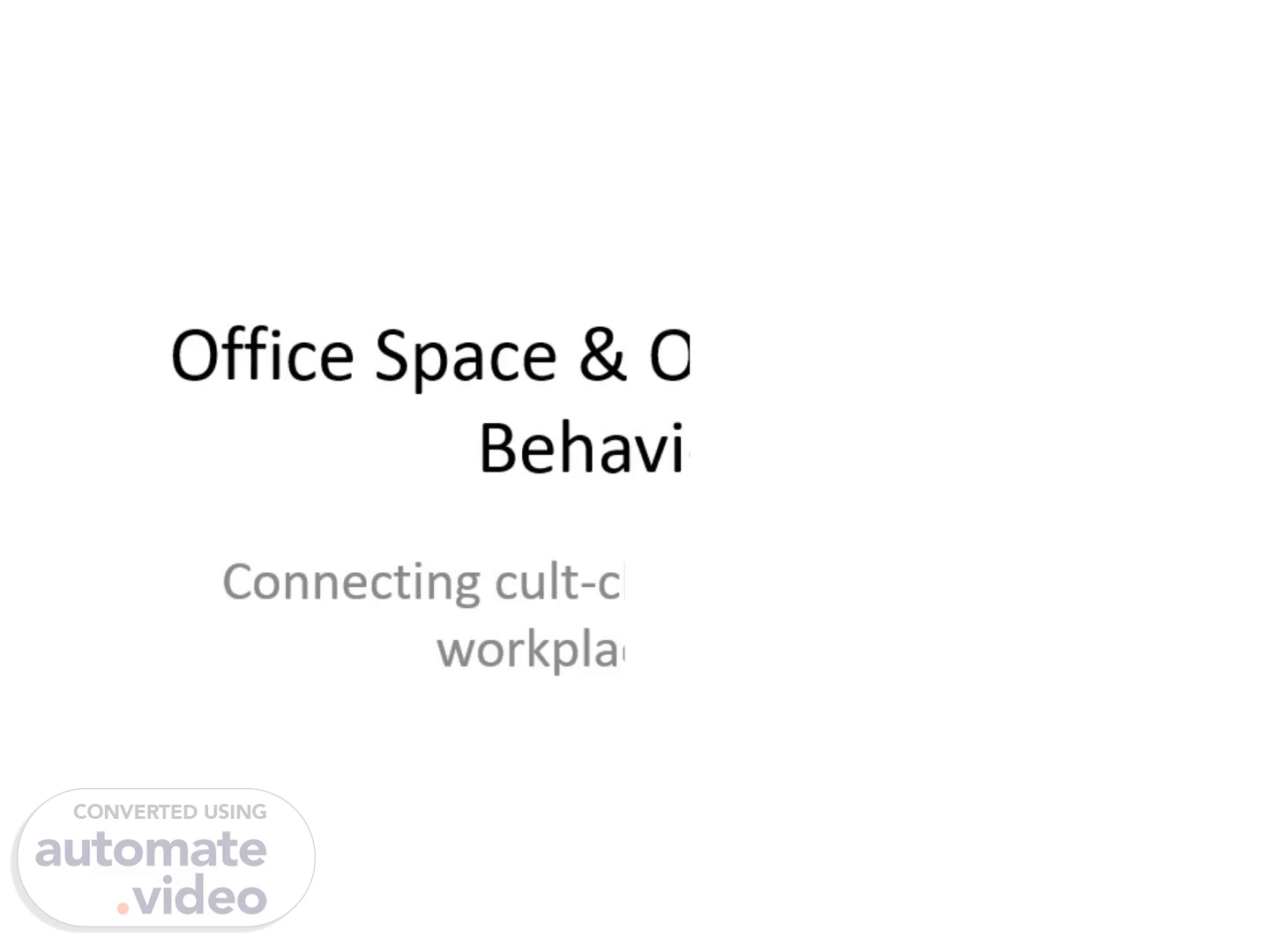Scene 1 (0s)
Office Space & Organizational Behaviour. Connecting cult-classic comedy with workplace theory.
Scene 2 (7s)
Why “Office Space”?. - Cult‐classic workplace satire (1999) - Universal themes: boredom, bureaucracy, burnout - Perfect “case study” for OB concepts.
Scene 3 (17s)
Organizational Behaviour 101. - Definition: Study of how people think, feel, and act in organizations - Core Levels: 1. Individual (attitudes, motivation) 2. Group (teams, communication) 3. Organization (culture, structure).
Scene 4 (30s)
Individual Behaviour – Motivation. - Peter’s Apathy: After therapy glitch, he stops caring about “TPS reports” - Theory in Action: - Herzberg’s Hygiene Factors: Boring work → dissatisfaction - Job Enrichment: Peter finds meaning in rebellion.
Scene 5 (43s)
Leadership & Management Styles. - Bill Lumbergh: Micromanaging, transactional - Impact: - Low trust, low morale - Contrast with laissez-faire leadership.
Scene 6 (52s)
Communication Breakdowns. - Endless Meetings: “This is not a memo, this is a meeting.” - Noise & Distortion: Bureaucracy dilutes messages - OB Insight: Effective feedback loops are essential.
Scene 7 (1m 4s)
Group Dynamics & Resistance to Change. - Initech’s Culture: Static, risk-averse - Peter, Michael & Samir: Informal “coalition” to rebel - OB Lens: - Group Cohesion, Shared Cynicism - Lewin’s Change Model: Unfreeze → Change → Refreeze.
Scene 8 (1m 16s)
Organizational Culture & Climate. - Artifacts: Gray cubicles, malfunctioning printer, stapler - Espoused vs. Enacted Values: - Says “teamwork,” enacts “compliance” - Takeaway: Culture shapes behaviour.
Scene 9 (1m 28s)
Job Satisfaction & Well-Being. - Milton’s Marginalization: Broom closet, ignored - Psychological Contract Breach: - Broken promises → disengagement, revenge.
Scene 10 (1m 37s)
Lessons & Takeaways. 1. Motivate by enriching work 2. Lead with trust & autonomy 3. Communicate clearly 4. Cultivate a healthy culture 5. Respect the psychological contract.
Scene 11 (1m 49s)
Discussion Questions. 1. Which character reflects your own workplace experiences? 2. How could Initech redesign jobs? 3. What small “culture shifts” would improve your office?.
